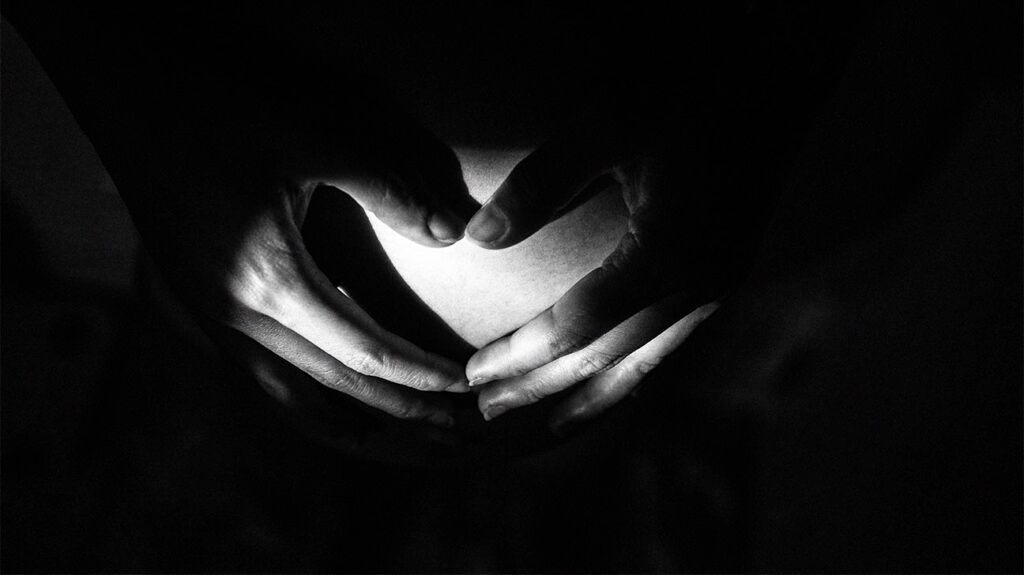Many people with endometriosis can conceive and give birth without issues. However, the condition can affect fertility and, in some cases, cause complications during pregnancy or even pregnancy loss.
Endometriosis is a chronic condition where tissue similar to the uterine lining grows in other parts of the body, such as the ovaries or fallopian tubes.
There are several ways endometriosis may increase the risk of complications during pregnancy, such as inflammation and changes to the uterus. According to research, people with endometriosis are more likely to experience pregnancy loss than those without the condition.
This article discusses endometriosis as a risk factor for pregnancy loss, the signs of pregnancy loss, and other potential pregnancy complications.

Pregnancy loss is relatively common and affects an estimated
According to a large 2023 study of people who had been pregnant, 18.9% of those with endometriosis experienced pregnancy loss compared to 17.3% of those without the condition. It also found that 3.9% of those with endometriosis had two pregnancy losses compared to 3.5% without.
Individuals with endometriosis are more likely to experience pregnancy loss, but there are several possible ways this may occur.
According to a
Experts think that people with endometriosis are
Additionally, endometriosis can cause chronic inflammation in the body that can affect the uterine lining, known as the endometrium. Inflammation can cause changes in the endometrium that can affect the formation of the placenta, and this may lead to pregnancy loss.
If a person thinks they may be experiencing pregnancy loss, it is important that they contact a doctor. In some cases, pregnancy loss can be dangerous without treatment.
Signs that someone may be experiencing pregnancy loss include:
- vaginal bleeding or spotting
- severe cramping
- severe abdominal pain
- blood clots
- aching, pressure, or pain in the lower back
- a change in vaginal discharge
Some people do not experience any symptoms when they are experiencing pregnancy loss, but
Possible pregnancy complications relating to endometriosis include:
- Preterm birth: This refers to birth before 37 weeks of pregnancy. According to an analysis of several studies, people with endometriosis are
nearly 1.5 times more likely to experience preterm birth than those without the condition. Additionally, infants born before 37 weeks are more likely to experience health issues. - Preeclampsia: Preeclampsia is a condition that causes a sudden rise in blood pressure during pregnancy. A
2017 study found that endometriosis is a risk factor for developing gestational hypertension-preeclampsia. - Placenta previa: This is a condition where the placenta sits very low in the womb, fully or partially covering the cervix. A
2016 study found that the likelihood of having placenta previa is significantly higher for those with endometriosis. - Cesarean delivery: Research suggests that those with endometriosis may be more likely to require a C-section.
Many people with endometriosis do not experience pregnancy complications or pregnancy loss. However, pregnancy loss can sometimes be dangerous for the pregnant individual. Therefore, a person needs to contact a doctor if they think they may be experiencing pregnancy loss.
A doctor can discuss possible treatments, give support, and offer guidance on the next steps after pregnancy loss.
It is important for individuals who have endometriosis to discuss their pregnancy with a doctor for advice to manage their symptoms.
Research suggests having endometriosis may increase a person’s risk of having pregnancy loss and several other pregnancy complications.
Endometriosis can affect pregnancy in several different ways, and research into understanding its effects is ongoing.
Speaking with a doctor can help individuals with endometriosis plan for pregnancy and understand how their condition may affect pregnancy.
